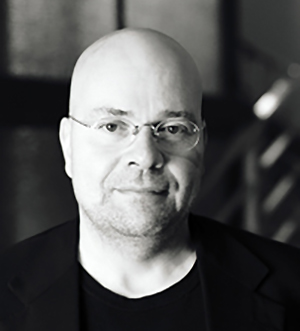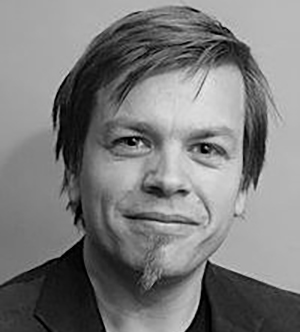Flying on an airplane in a long, intercontinental flight I decided to kill some time watching American TV series. Among the options I found was 2 Broke Girls, a situational comedy where two young women from Brooklyn, N.Y. start a cupcake business with almost no success. Interestingly I immediately noticed how the two protagonists (Max and Caroline) spoke. In particular, I noticed how some of the words or expressions they use were already integrated in the language of young Spanish-speaking people I know, who would use these English formulations in any given Spanish sentence whether in a conversation, in a Facebook status or in a tweet in Tweeter. Some of these words and expressions are “bitch”, “fuck off”, “suck it”, just to name a few examples. I then tried to remember the profile of Spanish speakers I knew who had integrated this vocabulary in their everyday language: young (between 20 and 30 years old), bilingual, highly educated and living in big cities, massive consumers of American TV films and series and of international (mostly English) music. The integration of this vocabulary obeys, in my opinion, to a particular phenomenon in which speakers associate these words with funny contexts and TV characters they identify with. In this way, not only the semantic, but also the pragmatic dimension of these words, considered as vulgar in English, changes when integrated into a Spanish-speaking context: “bitch” wouldn’t function as an insult anymore, but almost as a praise, remarking abilities such as being able to defend oneself quickly (to be Schlagfertig in German) or having high self-esteem. In a Spanish context, it could be even used in an oral context in front of other people: in many Spanish-speaking cultures insulting each other belongs to a regular camaraderie code, not only among men, but also among women –or between men and women: hijo de puta (son of a bitch) or güey (jerk) can be used friendly in some regions (from Cádiz to Mexico City), so why shouldn’t the English “bitch” be used in the same way? In the case of “bitch”, I could notice its semantic / pragmatic transformation in a situation where a Mexican friend answered her cell phone during a dinner with Canadian visitors who spoke some Spanish: When she answered her mobile, she greeted “¿Qué onda, bitch?” (What’s up, bitch?). Our Canadian guests looked consternated, since they thought my friend was annoyed by the call or angry about something. But they realized immediately she hadn’t lost her good mood: they were confused, because the used vocabulary (original semantics) didn’t match the context and they needed some seconds to comprehend the word’s new function (pragmatics). No insult was really meant.
This reminds me of the adoption of the word “cool” in Spanish language: at least in Mexico, where I grew up, it was Bart Simpson who brought it into the language of youngsters. Noticing the pale effect –or I’d rather say no-effect–of the literal Spanish translation (cool = fresco), the Latin-American dubbed version of The Simpsons started using the English “cool” (“cúl”) instead. This adjective, widely accepted by most –if not every— young or not so young media consumers, also appears in current German language.
This phenomenon shows how words travel through media. If they stay longer in the vocabulary of a particular language, or disappear after some years, it’s a matter of time. Until now nobody would use these words in Spanish or German outside a conversation or in a social media context. But why are these words so easily integrated? Is it that their imaginary, fiction-charged connotation contributes to a positive reception in another language? If, as a speaker, I identify myself with Bart Simpson or Max, from 2 Broke Girls, and if I use their vocabulary, do I integrate together with their words, also the whole imaginary dimension and thus contribute to their pragmatic / semantic change in the receptive language?
Benedict Anderson explains in Imagined Communities (2004) how languages such as Latin, Arab and Chinese once contributed to build communities of men of letters, unified by ability to access not only to knowledge, but to an immanent truth through the reading and interpretation of sacred signs. I ask myself in what extent are mass media contributing to create a similar international, imagined community of people who are linked by the integration of a popular, English vocabulary, and their connection to the world of entertainment and popular culture: “bitch”, “cool”, “fuck” are expressions I hear not only in Mexico –or that I have used myself in certain contexts–, but also in Germany among people of a certain age (outside this age-group, particularly an older one, these words probably don’t have an effect of any kind).
On the one hand, it seems that a new imagined community of social media consumers has been created and it’s in a constant transformation. Besides, there is a conscience of the existence of an imaginary Other (TV and Film characters) and of the culture in which it has been created. But on the other hand this follows to another question: to which extent is that “Other” conscious about the existence of us? Does that “Other” absorb linguistic elements from us or we are just being linguistically “colonized” or at least “marked” by a global media experience which links us not only to a generational identity, but also to an imagined global self-regulated by a same center of power (American TV)? Which other examples can be found and if these words also travel with their imaginative, fictional semiotic charge? Are these words travelers –or are they already settled immigrants?




